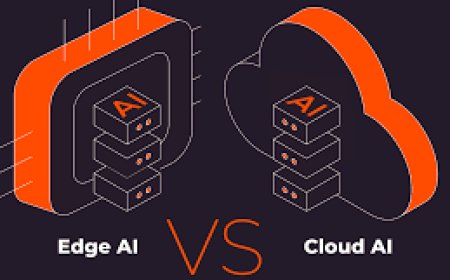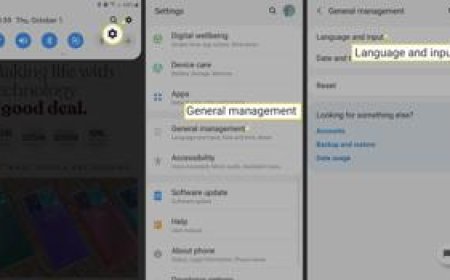Why UK Retailers Are Switching to Cloud-Based EPOS Systems for Growth
In the fast-evolving UK retail landscape of 2025, staying competitive means embracing technology that drives efficiency, scalability, and customer satisfaction. For many retailers, particularly small to medium-sized convenience stores, the shift to cloud-based Electronic Point of Sale (EPOS) systems is proving to be a game-changer. Unlike traditional on-premise POS systems, cloud-based EPOS solutions offer unmatched flexibility, cost savings, and data-driven insights, fueling growth for UK businesses. Heres why retailers across the UK are making the switch and how systems like those offered byMPOS are leading the charge.
The Limitations of Traditional POS Systems
Traditional POS systems, often reliant on local servers and outdated hardware, have served retailers for decades. However, they come with significant drawbacks that hinder growth in todays digital-first retail environment. These systems require substantial upfront investments in hardware, software licenses, and IT infrastructure. For a small UK convenience store, this can mean tying up capital that could be better spent on stock or marketing.
Moreover, traditional systems are prone to downtime, require manual updates, and lack real-time data access. If a retailer operates multiple locations, syncing inventory or sales data across stores becomes a logistical nightmare. In an era where customers expect seamless experienceswhether shopping in-store or onlinethese limitations are no longer tolerable. Cloud-based EPOS systems address these pain points, offering a modern alternative that aligns with the needs of UK retailers.
What Makes Cloud-Based EPOS Systems Different?
Cloud-based EPOS systems, like MPOS, store data on secure, remote servers accessible via the internet. This eliminates the need for bulky on-site hardware, reducing setup costs and maintenance. Retailers can access their EPOS system from any device with an internet connection, whether its a tablet at the checkout or a laptop at home. This flexibility is particularly valuable for UK retailers managing busy convenience stores or expanding to new locations.
Key features of cloud-based EPOS systems include:
-
Real-Time Data Access: Monitor sales, inventory, and customer trends instantly, enabling faster decision-making.
-
Scalability: Easily add new terminals, users, or store locations without costly hardware upgrades.
-
Automatic Updates: Software updates are rolled out seamlessly, ensuring access to the latest features without downtime.
-
Integration Capabilities: Connect with e-commerce platforms, payment gateways, and delivery apps for a unified retail experience.
-
Enhanced Security: Cloud systems use encryption and regular backups to protect sensitive data, a critical concern for UK retailers handling card payments.
These advantages make cloud-based EPOS systems a strategic investment for retailers aiming to grow in a competitive market.
Driving Growth for UK Retailers
1. Cost Efficiency and Scalability
For UK retailers, particularly small businesses, budget constraints are a constant challenge. Cloud-based EPOS systems like MPOS operate on a subscription model, spreading costs over time and eliminating the need for large upfront investments. This allows retailers to allocate funds to growth initiatives, such as expanding product lines or opening new stores.
Scalability is another key benefit. As a retailer grows, adding new checkouts or locations is as simple as updating the subscription plan. For example, a convenience store chain in Manchester can seamlessly integrate a new branch into its MPOS system, syncing inventory and sales data across all locations in real-time. This scalability supports growth without the operational headaches of traditional systems.
2. Enhanced Customer Experiences
Todays UK shoppers expect fast, personalized service. Cloud-based EPOS systems enable retailers to deliver this through features like integrated loyalty programs and customer relationship management (CRM) tools. MPOS, for instance, allows retailers to track purchase histories and offer tailored promotions, fostering customer loyalty.
Additionally, cloud-based systems support modern payment methods, including contactless cards, mobile wallets, and Buy Now, Pay Later options. By offering flexible payment solutions, retailers can reduce checkout friction and boost sales. For convenience stores, where speed is critical, these features translate into happier customers and repeat business.
3. Streamlined Operations and Inventory Management
Efficient operations are the backbone of retail success. Cloud-based EPOS systems provide real-time insights into inventory levels, helping retailers avoid stockouts or overstocking. MPOSs integration with wholesalers ensures automatic reordering of popular items, saving time and reducing waste.
For multi-channel retailers, cloud-based systems unify online and in-store inventory. A customer ordering online can trust that the stock is accurate, preventing costly errors. By automating tasks like wastage labeling and shelf edge updates, MPOS frees up staff to focus on customer service, driving operational efficiency.
4. Data-Driven Decision Making
In 2025, data is a retailers most valuable asset. Cloud-based EPOS systems offer robust analytics tools that track sales trends, peak hours, and top-performing products. For UK retailers, this means identifying opportunities to upsell, optimize staffing, or adjust pricing strategies.
MPOSs reporting dashboard, for example, provides actionable insights at a glance. A London-based convenience store owner can analyze which snacks sell best during lunch hours and stock accordingly. These data-driven decisions lead to higher margins and sustained growth.
The UK Retail Trend in 2025
The adoption of cloud-based EPOS systems is accelerating across the UK, driven by the need for agility and innovation. According to industry trends, retailers prioritizing digital transformation are outperforming competitors stuck with legacy systems. For small and medium-sized businesses, cloud-based solutions level the playing field, offering enterprise-grade tools at affordable prices.
MPOS is at the forefront of this trend, providing UK retailers with a tailored EPOS solution designed for convenience stores. Its features, from Electronic Shelf Edge Labels to self-service kiosk integration, empower retailers to operate smarter and grow faster. By switching to a cloud-based system, retailers can future-proof their businesses against evolving consumer demands and technological advancements.
Conclusion
The shift to cloud-based EPOS systems is more than a trendits a strategic move for UK retailers aiming for growth in 2025. By offering cost efficiency, scalability, enhanced customer experiences, and data-driven insights, systems like MPOS are transforming how convenience stores operate. For retailers ready to leave behind the limitations of traditional POS, the cloud is the key to unlocking sustainable success. Explore how MPOS can drive your retail growth today.











































